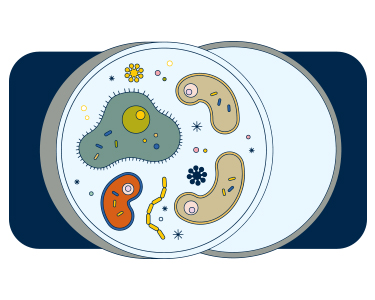Rare Diseases
 A rare disease is defined as a disease that affects fewer than 200 000 people in the
United States. Taken together, there are more than 8,000 rare diseases that affect
over 30 million people in the United States. Traditional, large-sample statistical
approaches are often limited for studying rare diseases because of the small number
of individuals experiencing the same disease. Thus, it is difficult to accurately
identify risk factors and develop severity scores for diagnosis of rare diseases,
as well as developing effective therapies and drugs that can be approved for treatment.
Our department is developing novel clinical trial designs for comparing multiple
doses of a drug by re-randomizing enrolled individuals with response adaptive methods
in order to efficiently “re-use” patients and still produce unbiased estimates of
treatment effects. The design of such trials is known as small sample sequential,
multiple assignment randomized trial (sn-SMART). Faculty are also collaborating with
medical investigators to develop international databases and registries of individuals
with rare diseases, with the goal of integrating data among many different rare diseases
and provide novel risk factors, biomarkers, and disease severity scores for rare diseases
including lipodystrophy and skin vasculitis.
A rare disease is defined as a disease that affects fewer than 200 000 people in the
United States. Taken together, there are more than 8,000 rare diseases that affect
over 30 million people in the United States. Traditional, large-sample statistical
approaches are often limited for studying rare diseases because of the small number
of individuals experiencing the same disease. Thus, it is difficult to accurately
identify risk factors and develop severity scores for diagnosis of rare diseases,
as well as developing effective therapies and drugs that can be approved for treatment.
Our department is developing novel clinical trial designs for comparing multiple
doses of a drug by re-randomizing enrolled individuals with response adaptive methods
in order to efficiently “re-use” patients and still produce unbiased estimates of
treatment effects. The design of such trials is known as small sample sequential,
multiple assignment randomized trial (sn-SMART). Faculty are also collaborating with
medical investigators to develop international databases and registries of individuals
with rare diseases, with the goal of integrating data among many different rare diseases
and provide novel risk factors, biomarkers, and disease severity scores for rare diseases
including lipodystrophy and skin vasculitis.
Faculty: T. Braun, K. Kidwell, Cathie Spino, Wen Ye
